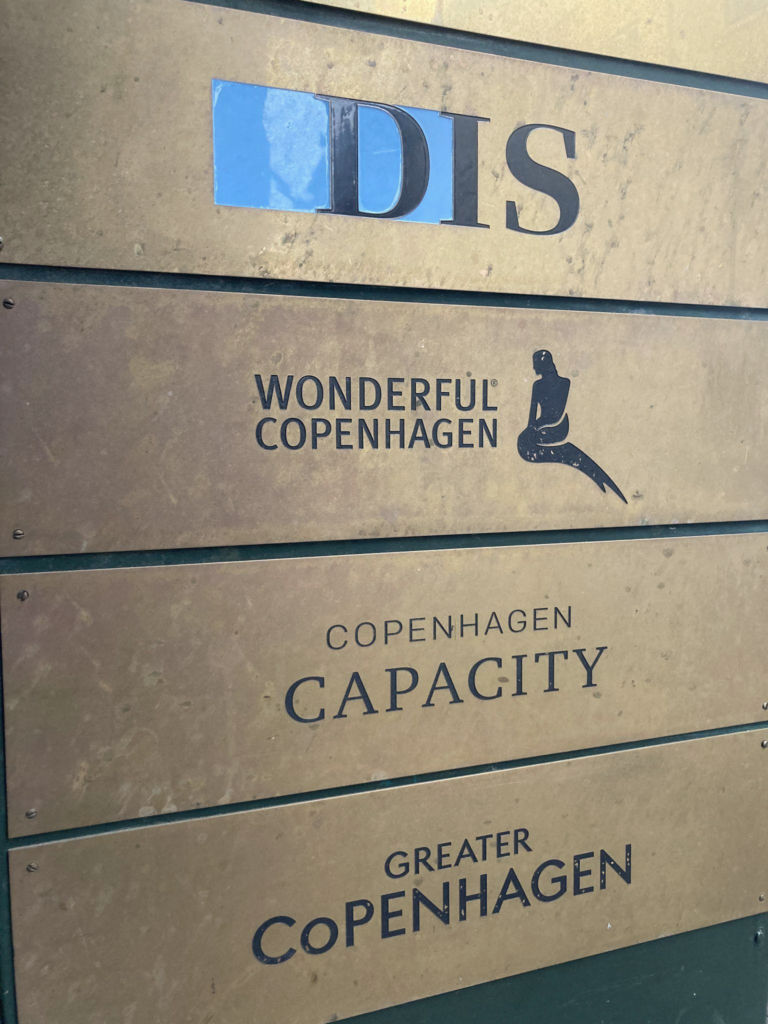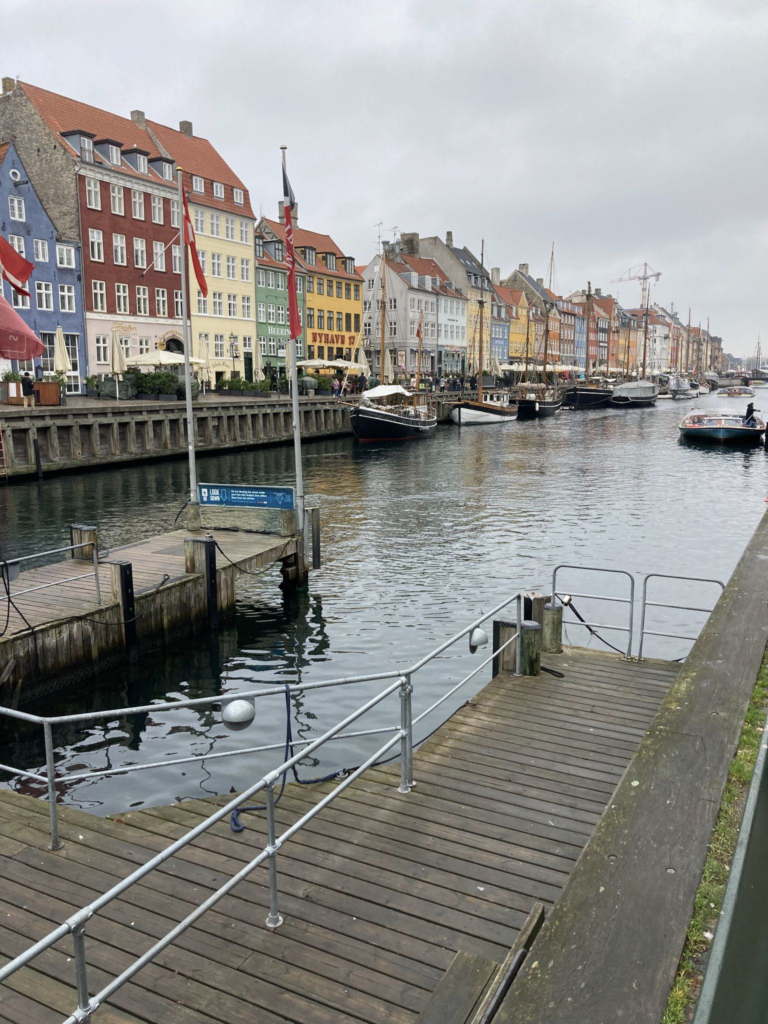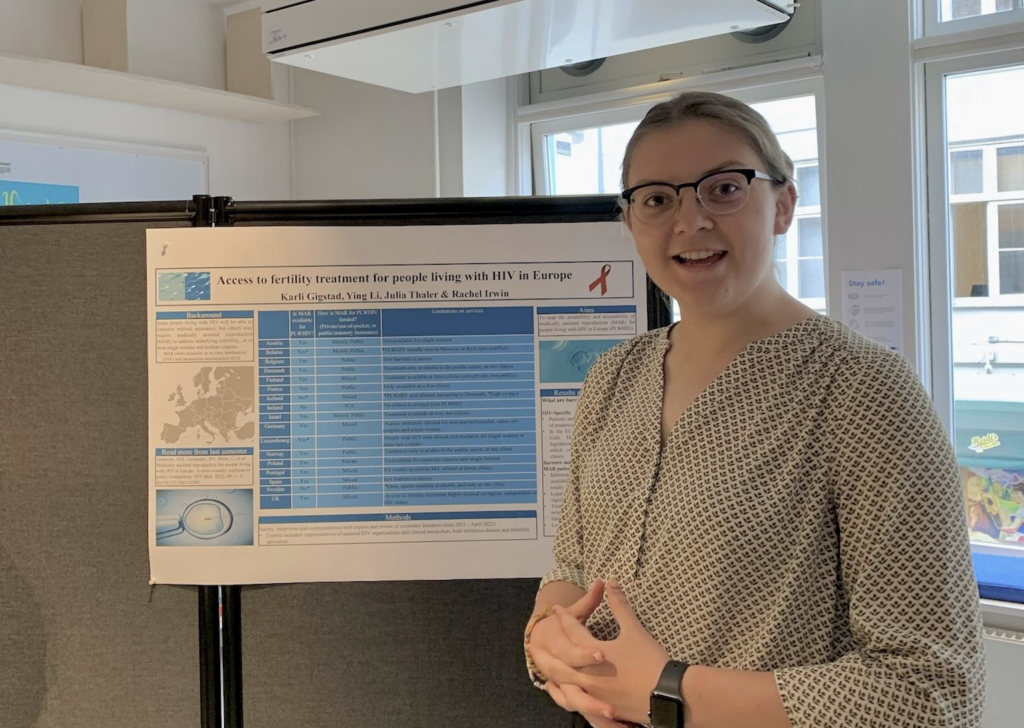Dr. Rachel Irwin, a professor at Lund University in Sweden and DIS research mentor in Copenhagen, recently published her research “HIV and access to fertility treatment in the European and Swedish Contexts”. The article was co-authored by two Wesleyan students, Julia Thaler and Karli Gigstad, who studied abroad with DIS in the Spring of 2022. This research, published in the Journal for Sexual and Reproductive Care, maps out access to fertility treatment across different European countries based on factors such as HIV status, marital status, insurance, etc. The research found that access to medically assisted reproduction is incredibly inconsistent and difficult to access for people living with HIV in most European countries. The paper calls for “an end to discrimination based on outdated medical knowledge, and for more clearly defined and readily available guidelines surrounding fertility treatment entitlements for people living with HIV”. Dr. Irwin speaks about her experience, saying:
“It was great to collaborate with two Wesleyan students. I really valued their ideas
and input into the research, and their work ethic! We hope that our research will
contribute to policy change and expanding access to fertility treatment for people
living with HIV in Europe.”
– Dr. Rachel Irwin
The DIS Copenhagen study abroad program allows students to choose a “core course” which determines which program students are placed in. Each core course features a week-long program study tour, which allows students to have an immersive hands-on experience within their program. During their time at DIS, Karli Gigstad studied in the Public Health program, while Julia Thaler studied in the Medical Practice & Policy program. These programs gave them both the opportunity to explore different healthcare institutions in Europe and speak with experts like Dr. Rachel Irwin. Their research with Dr. Irwin included interviewing professionals in different European countries to learn what the regulations concerning HIV and medically assisted reproduction are throughout Europe. Karli described her experience with the research, saying that it was interesting to see how access to fertility treatment differed in various countries based on “prejudices, financial structures, cultural beliefs and more”. She goes on to say:
“This experience was informative in teaching us about the research process and
how difficult it can be to find specific information. 90% of the people we contacted
never responded which made it challenging and on top of that, not all of them
could answer our questions due to the specificity of the research. It was certainly
eye-opening to see how many barriers researchers face if asking complicated,
uncommon questions.”
– Karli Gigstad ‘23
Congratulations Dr. Irwin, Julia, and Karli and thank you for sharing about your experience!




Written by Anna Merrifield, Class or 2024, amerrifield@wesleyan.edu


